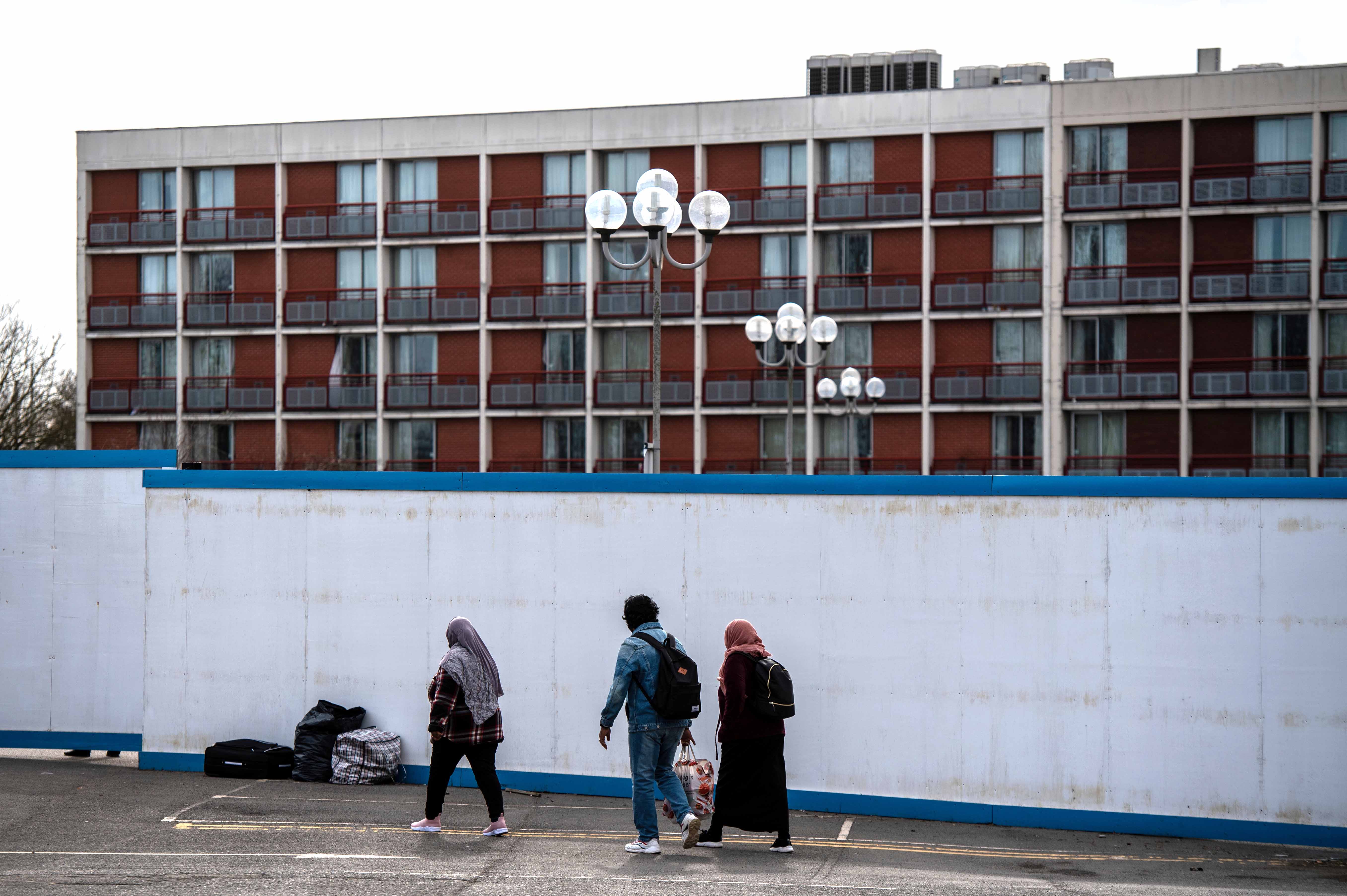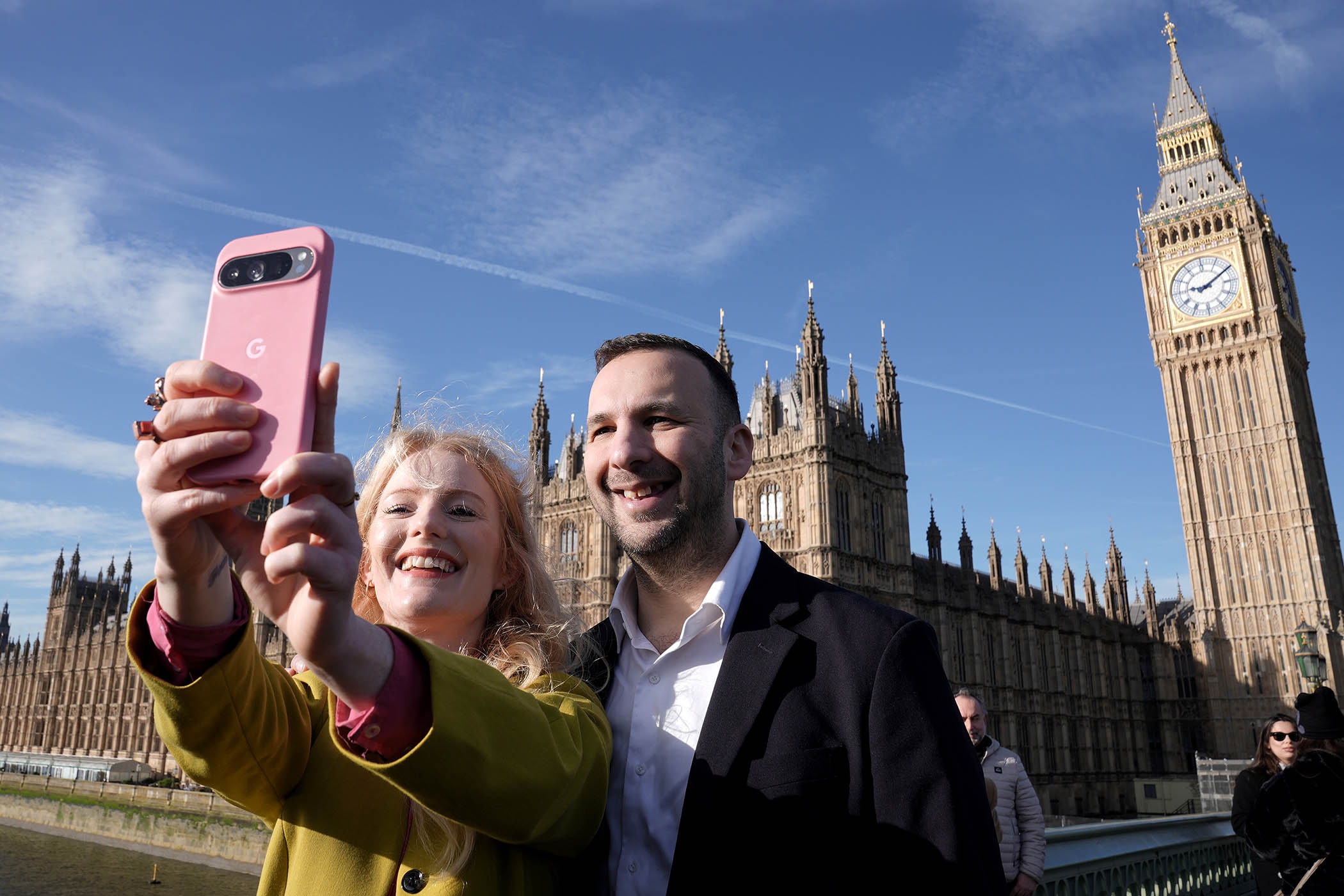This week Keir Starmer promised a significant fall in net migration to the UK over the next four years.
So what? That will be the easy part – net migration is already falling after rising to record numbers under the last administration.
The focus of much public anger – brought into sharp focus by racist riots last year – is the asylum system, the use of hotels to house people while their claims are processed and the arrivals of thousands of migrants to Britain’s shores in small boats.
The UK spent an estimated £5.3bn last year on the asylum system, with £3.1bn on accommodation. Although far higher than Home Office predictions, it is 0.5% of an annual government spend of £1.226tn.
Small boat arrivals last year accounted for about 5% of total net migration to the UK. The post-Brexit spike in migration has been driven by arrivals of non-EU workers, particularly in the healthcare sector, on work visas, along with their dependents.
The overspend. After taking over as chancellor last July, Rachel Reeves calculated an overspend by the previous government of £6.4bn on the asylum system. She put this at the heart of a £22bn “black hole” in public finances for 2024. Scrapping Conservative policies including the Rwanda scheme saved more than a billion.
The main driver of repeated cost miscalculations has been housing asylum seekers awaiting decisions about their claims, propelled by the last government’s decision in 2019 to rush out contracts to three companies to house applicants in hotels across the country.
The hotels. This month the National Audit Office (NAO) revealed that the overall cost of using hotels is expected to rise to more than £15bn over 10 years – three times the projected cost when the scheme was set up in 2019.
The system of housing asylum seekers appears to work for nobody except the three companies that signed contracts in 2019 to provide the service, which have recorded profits of £383m in five years.
Despite efforts in some political circles to characterise hotel accommodation as “luxurious”, companies have been found to be housing migrants in overcrowded rooms with a problems including abusive staff, under-nourishing food and damp and mould.
Newsletters
Choose the newsletters you want to receive
View more
For information about how The Observer protects your data, read our Privacy Policy
The government has promised to end the use of the hotels by 2029. According to the NAO report, 222 hotels are still in use to house 38,000 people, costing roughly £145 per person a night, compared with £14.41 when shared housing is used.
Bad contracts. The beneficiaries of the hotels contracts are growing wealthy as a result of the rushed 2019 contracts.
Critics point to poor oversight and a lack of key performance indicators on safeguarding and standards and of a proper tendering process. The contracts have a break clause that can be used in 2026, but the Home Office is thought to be hesitant about the alternative – a system that would make local authorities responsible for housing migrants in communities, potentially using a government-run capital fund to pay for properties.
The backlog. More than 125,000 people were awaiting a decision on one of 91,000 asylum claims at the end of 2024. This is lower than a record backlog of 132,000 claims at the end of 2022.
Failed applicants have a right to appeal and the backlog for first-tier asylum tribunal stands at 42,000.
This increases the cost, because those awaiting a decision or appeal result are generally not allowed to work. Most require accommodation and receive £49.18 a week in asylum support, reduced to £8.86 a week for those in hotels that provide meals.
The border. The Home Office will pay £476m to France to help stop the small boat crossings this year. Although the details of that spending have not been released, much of it pays for transport, including helicopters, cars and a horse unit, as well as surveillance equipment ranging from drones to “hunting cameras”.
There are concerns that police pressure on the French coast has led to more deaths, with smugglers packing more migrants on boats.
Small boat and ‘irregular’ arrivals. In 2024, 78 people died crossing the Channel and the number of arrivals this year has exceeded 10,000 – an increase of about 40% compared with the same period last year.
But the focus on small boat arrivals has obscured the true picture, not least in terms of total net migration, which stood at 728,000 in the year to June 2024. Just 37,000 arrived by small boat – or 5%.
The post-Brexit spike in migration has been driven by arrivals of non-EU workers, particularly in healthcare, on work visas
The post-Brexit spike in migration has been driven by arrivals of non-EU workers, particularly in healthcare, on work visas
Small boats on average account for 80% of “irregular” arrivals to the UK, though detection is far higher than other methods and there’s no reliable data for visa overstayers, almost all of whom arrive by air.
While about 95% of small boat arrivals apply for asylum, the arrivals themselves accounted for just a third of the total asylum applications last year, with more than a third (about 40,000) travelling on student or work visas, then applying on arrival. The rest arrived using other routes.
The top five nations of origin for all asylum applications last year were Pakistan (10,542), Afghanistan (8,508), Iran (8,099), Bangladesh (7,225) and Syria (6,680). Applicants arriving by small boat were most commonly from Afghanistan, Syria, Iran, Vietnam, and Eritrea.
Last year there were more than 8,000 enforced returns to another country. About 1,800 people were in immigration detention, many after failed applications, in June 2024.
UK asylum in European context. Asylum seekers are no more likely to choose Britain than its continental neighbours as a destination.
In 2024, the UK received about 108,000 applications, while France received 159,000. France has a near-identical population but is nearly twice the size of the UK in terms of land mass. Germany consistently receives the most applications, with 237,000 last year, despite a 29% decrease on 2023. Spain was the second most popular destination with 166,000 followed by Italy, which was level with France.
The aid budget. NGOs have criticised the Home Office for taking billions out of the aid budget to pay for the hotel fiasco.
Britain diverts about 20% of its aid budget to cover the domestic asylum system. Last year this was £2.8bn out of a budget of £14bn, proportionally less than the 28% the year before from a budget of £15.3bn.
The aid budget has also been reduced, which many see as short-sighted as the government looks to tackle the drivers of mass migration – the desperation caused by poverty, war, famine, political chaos and despotic regimes that cause people to flee and seek asylum in the UK.
Photograph by Chris J Ratcliffe/Getty Images



